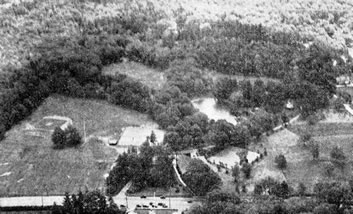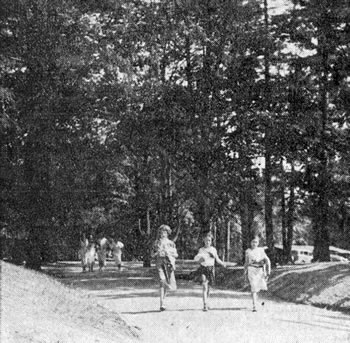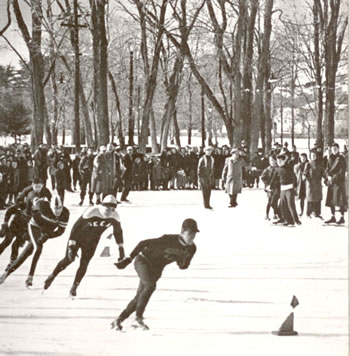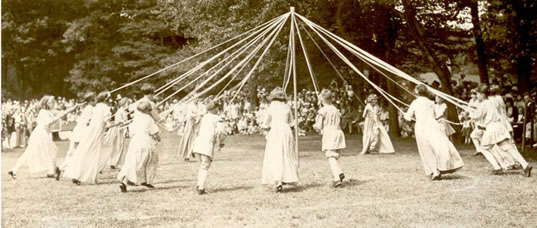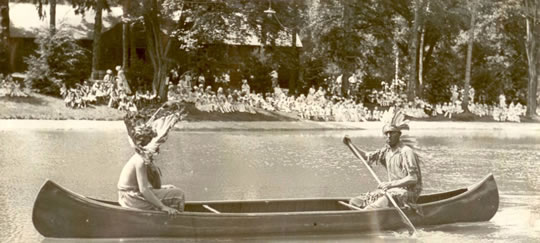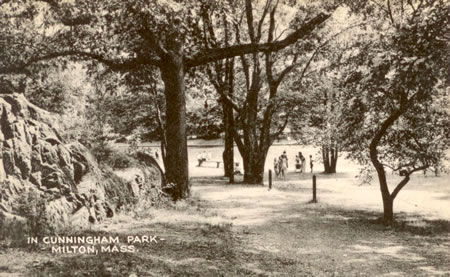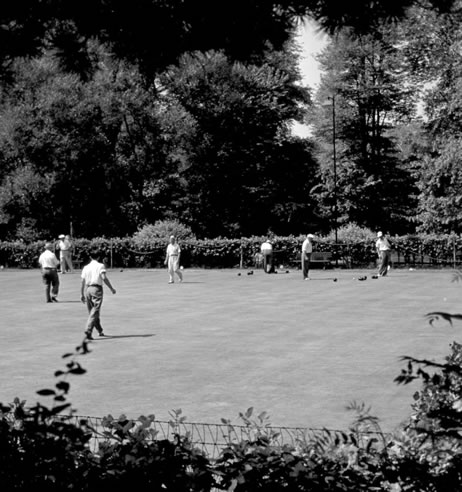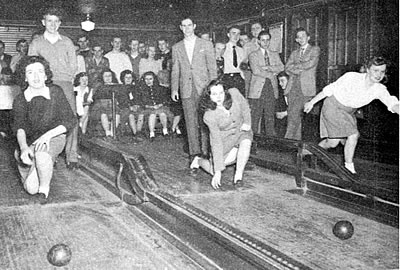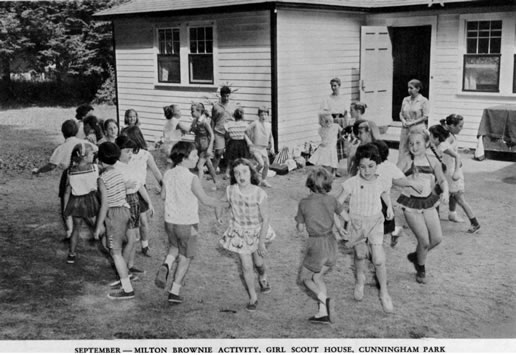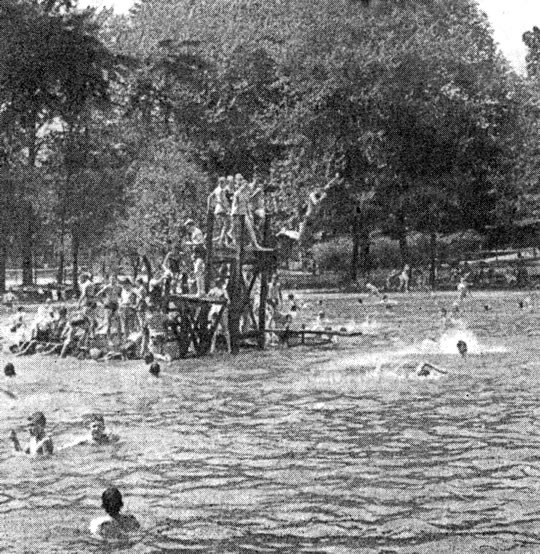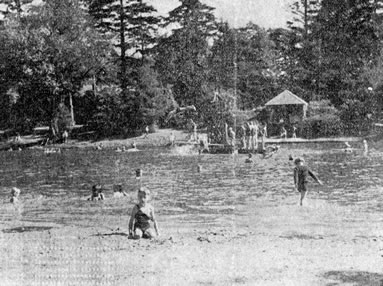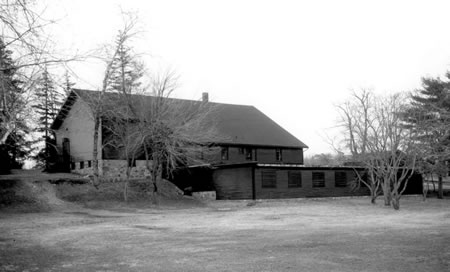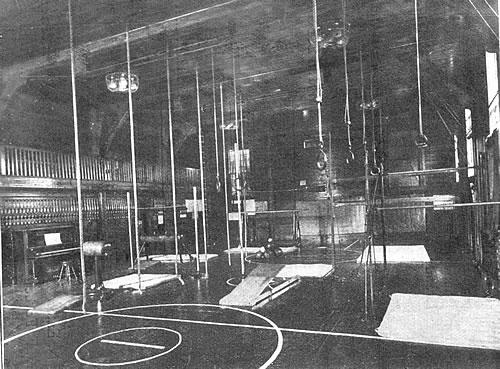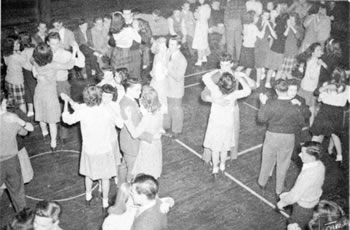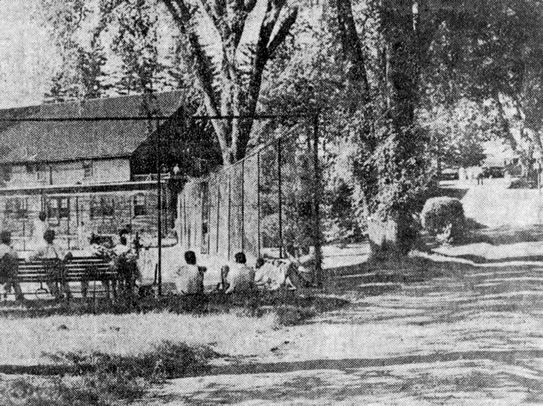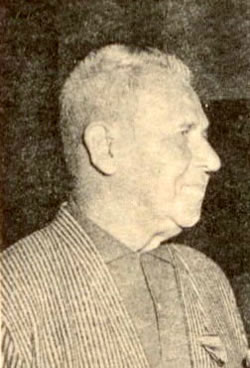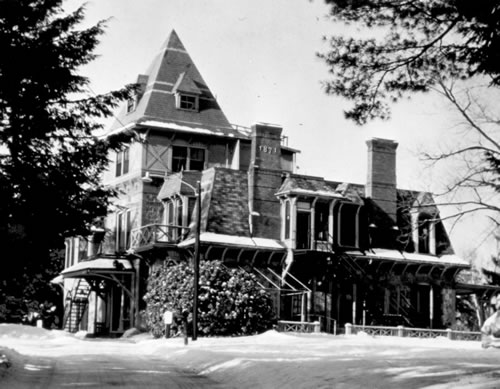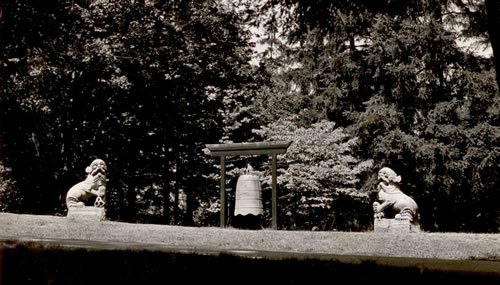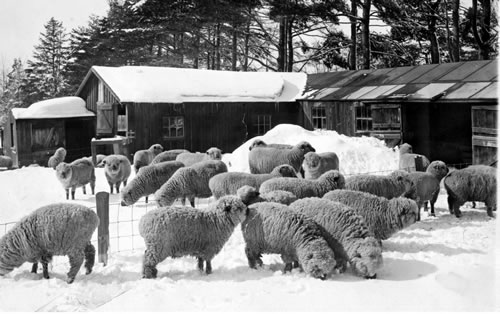
|
|
Celebrating Cunningham Park’s Centennial Anniversary
Long before Edge Hill Road existed, what today is Cunningham Park was in the latter 19th century part of the 150-acre estate of Edward L. Cunningham. Cunningham had been a business partner with two eminently successful Milton brothers, Robert Bennet Forbes and John Murray Forbes, in Russell and Company. In a tragic incident that accounts almost always misrepresent, Edward died of a gunshot wound in November 1889. His aunt by marriage (to Rev. Francis Cunningham) was another Forbes sibling, Mary Abbot Forbes. Better known by her married name, Mary A. Cunningham, she died in 1904, bequeathing the bulk of her fortune — some $600,000 (the equivalent more than $6 million today) — to a trust “to be utilized for the benefit of the inhabitants of Milton.” Subsequently, the Cunningham Trust came into being, and its three trustees purchased 100 acres of the late Edward Cunningham’s estate for use as the publicly accessible, but privately owned Cunningham Park, which officially opened in 1905. That same year, the trustees sold Edward’s 1871 mansion and some of the acreage for $1.00 to the Convalescent Home, which had been housed since 1877 at the corner of Canton Avenue and Thacher Street. (The $1.00 was never paid!) At about the same time, a group headed by the renowned physician, Dr. M. Vassar Pierce, “established a small hospital under the same roof.” Thus was born Milton Hospital, which would serve the community from that location for 45 years, until moving to Highland Street in 1950. In 1906, Cunningham’s main barn, located near Edge Hill Road, was converted into what locals simply called the “the Gym,” eventually becoming a center for a variety of activities, including league bowling, movies, and “Canteen” dances for teenagers. In 1920, the swimming pool was built, and was said to have been the world’s largest man-made pool when it opened. (It was renamed for William Caldwell, who devoted more than 40 years to managing the Park.) Then came the bowling green in 1929, two sets of tennis courts, the Girl Scout’s House, and the old skating house — a long wooden structure for ice skaters, gender-divided into two rooms that were heated by large potbelly stoves, and with a deck and bench running the length of the building, which stood at the edge of the large skating pond just east of the swimming pool. For many years, both Milton High School and Milton Academy used the skating pond for hockey. The skating house is now gone, as are the lower tennis courts, as well as the original pool and the gym — the latter having been replaced by more modern ones. And, after Milton Hospital had moved in 1950, the Convalescent Home was eventually torn down in the 1960s. Yet, all in all, Cunningham Park has changed relatively little in its 100 years. Even the original bathhouse is still in use. Of course, there have been cosmetic changes, making it a pleasant exercise in nostalgia to tour the old Park, via photographs, as it used to be. Come along with us, therefore, as we do so below.
|

